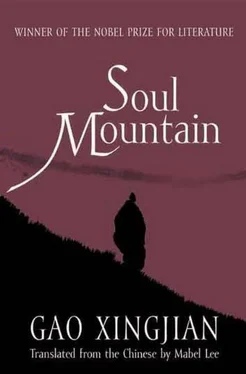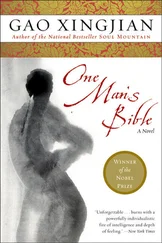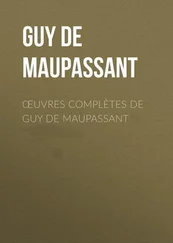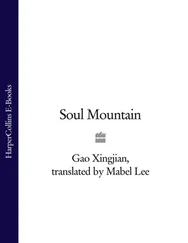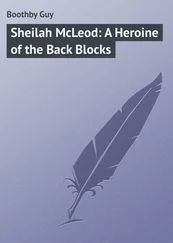“You’re right again, but take it easy and read on!”
He is beaming and that superficial modesty put on by grass-root cadres disappears. He takes the notebook from me and, imitating the singing pose of a master singer, chants in a high-pitch voice:
I clasp my hands high in greeting,
Whence do you come singer? Whence do you come?
What province what prefecture? What brings you here?
We respond to your greeting:
I am a drum singer from Yangzhou,
And I a singer from Liuzhou,
We travel to song squares and call on friends,
Here in your honourable territory,
We beg hospitality.
What do you carry on your shoulder pole?
What do you carry in the basket you hold?
The weight bends your back and shoulders,
Yet you seek the advice of the master singer.
My pole carries song books,
My hand carries a rare book,
We do not know if the master singer has seen these?
But we have come to your home for instruction.
I can see the people, hear their voices, the sound of a gong and the beat of a drum. However outside the window is only the sound of the mountain wind and the lapping of water.
There are three hundred and sixty pole loads of songs,
Which load do you carry on your pole?
There are thirty-six thousand books of songs,
Which book do you carry in your hand?
Address me as master singer for I know,
The first book is the book born within us,
The first book is the script born within us.
I understand when I hear,
The master singer is an expert.
To know the things born within us,
Is to know the principles of Earth and Heaven.
I venture to ask him,
In which month of which year was song born?
On which day of which month was song born?
A tragic ancient sound in the darkness accompanies the sound of the wind and the beat of the drum and I seem to hear it all.
Fuxi made the strings of the qin ,
Nüwa made the pipes of the sheng ,
With Yin there is language,
With Yang there is sound.
With the matching of Yin and Yang there is man,
With man there is sound,
With sound there is song,
The songs grew many, and song books came into being.
These books were rejected by Confucius,
And dumped in the wilderness.
One was blown up into the sky,
So there came to be the Cowherd and the Weaving Maid.
Another was blown into the sea,
Fishermen picked it up and sing for wronged ghosts.
A third was blown into a temple,
So Buddhist monks and Daoist priests sing their scriptures
A fourth landed in a village lane,
So girls sing of their longings.
A fifth landed in a paddy field
So farmers sing them as mountain songs
The sixth book is the Record of Darkness
When the master singer holds it, he loses his soul in song.
“But this is just the prelude. What about the Record of Darkness ?” I have been pacing about the room but I stop to ask him this.
He says this is the filial song they used to sing in early times at mountain funerals before the interment of the coffin. It was sung on the song ground in front of the spirit hall for up to three days and three nights, however it can’t be sung frivolously and when it is sung all other songs must be suppressed. He had only taken down a small part when the master singer suddenly fell ill and died.
“Why didn’t you write it down at the time?” I say looking at him.
“At the time the old man was ill and sat with his bedding wrapped around him in a small wooden chair,” he explains. It is as if he is to blame and he resumes his timid appearance.
“Isn’t there anyone else in the mountains who knows how to sing it?”
“Some can sing the prelude but no-one can sing all of it.”
He says that he knew an old master singer who had a brass chest full of song books, amongst which was a complete set of the Record of Darkness . At the time they were confiscating old books and the Record of Darkness had been targeted in the search for reactionary and superstitious works. The old man buried the brass chest. A few months later he dug out the chest and found the books had gone mouldy so he spread them out in the courtyard to dry. He was seen and reported. The head of the forest district had the public security officials come and the old man was forced to hand over the whole set. It wasn’t long afterwards that he died.
“Where else can reverence of the soul be found? Where else can we find these songs which one should listen to while seated in quiet reverence or even while prostrated be found? What should be revered isn’t revered and instead only all sorts of things are worshipped! A race with empty, desolate souls! A race of people who have lost their souls!” I angrily declare.
He watches me with a worried look without saying so much as a word. I realize that I must have drunk the rice wine too quickly and that I am consumed by my rage.
In the morning a jeep stops in front of the building and someone comes to tell me that several of the leaders and cadres of the forest reserve have called a special meeting on my behalf and have invited me to hear a report on their work. This makes me feel ashamed. I think it must be because I had been bragging and boasting while addle-brained during that drinking orgy in the county town. As a result they think I’ve come from Beijing to make an investigation and they want me to let their superiors know about the situation here. The car is waiting at the main door and it is impossible for me to make up an excuse.
The cadres are already seated with their cups of tea in front of them in the conference room of the administrative office and as soon as I take my place, a cup of tea is brought out for me. It is just like the “experience-life” group visits organized by the Writers’ Association to factories, military units, farms, mines, folk craft research centres and revolutionary memorial halls. In those times, the leaders of the writers would speak at the main table, but minor writers like me who were there to make up numbers were free to find some inconspicuous corner in which to drink tea and be silent. However, as they have convened this meeting especially for me I have to think about some things to talk about.
A cadre in charge first presents a review of the history and construction work of the reserve. In 1907 an Englishman called Wilson came here and collected specimens. At the time it was inaccessible, so he could only get to the fringe areas, indeed before 1960 you still couldn’t see the sun and could only hear the sound of the water, it was still a vast expanse of virgin forest. During the 1930s the Guomindang Government made plans for logging the trees but there were no roads and they couldn’t get in.
“In 1960 the Forestry Ministry made aerial maps. There was a total area of 3,250 square kilometres of mountain forest. Development started in 1962, proceeding from both the northern and southern extremities at the same time. In 1966 the road was put through. In 1970 an administrative district was formed, containing 50,000 peasants and about 10,000 cadres, forestry workers and their families. At present 900,000 cubic metres of timber is supplied to the state.
“In 1976 scientists petitioned for the protection of Shennongjia.
“In 1980 a proposal was made for a reserve.
“In 1982 the provincial government approved the setting aside of 80,040 hectares for the reserve.
“In 1983 the reserve was established and the timber industry units within the protected area were withdrawn, four sign-posted gates were erected and a surveillance unit was established. It was possible to stop vehicles but not people. Last year, in one month, three to four hundred people came in for traditional medicines. They dug up the rhizomes of goldthread and stripped off the bark of winter jasmine and eucommia. People also come in to illegally cut trees and to hunt. There are also those who come to look for the Wild Man.
Читать дальше
Конец ознакомительного отрывка
Купить книгу
